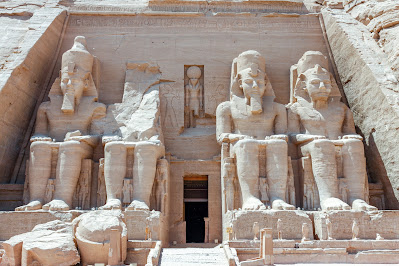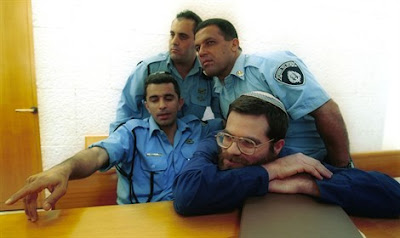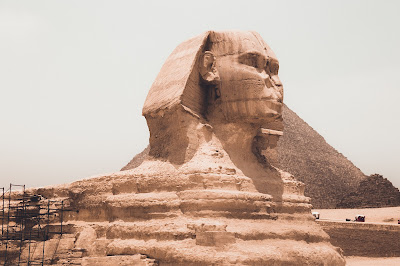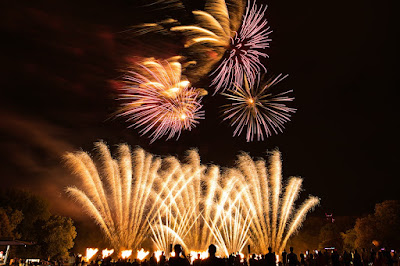Q. I am currently a student in a Hesder yeshiva [combining advanced Torah study with IDF military service], trying to build in myself a strong faith-based outlook. I hear many classes from various rabbis and read various books, but have still not found an answer to the question that is bothering me. It is this: Isn't it simply "convenient" for us to believe that there is something above and beyond the material world? It is not just "convenient" to believe that there is a G-d Who sees everything and thus gives meaning to life? Could it be that it is just this "convenience" that causes us to believe in G-d? We see, for example, that many of those who become religiously observant were looking for meaning in their lives, and "found" it in their faith in G-d.
Weekly Torah insights in the spirit of the teachings of Rav Kook, including video divrei Torah, Parshat HaShavua, Ask the Rabbi Q&As, and short clips of filmed classes
Thursday, December 29, 2022
Vayigash: Monotheism Even in Ancient Egypt!
by Rav Yosef Carmel, translated by Hillel Fendel
Before Yaakov Avinu (Patriarch Jacob) leaves the Holy Land for the last time and descends to Egypt with his family, G-d appears to him "in the visions of the night [and says to him]: Yaakov, Yaakov… I am the Lord, the G-d of your father; do not fear to descend to Egypt, for I will make you a great nation there. I will descend with you to Egypt, and I will certainly raise you up, and Yosef will place his hand on your eyes" (B'reshit 46,2-4).
The final phrase in that verse is somewhat enigmatic, and has been explained in various ways.
Thursday, December 22, 2022
Light from Within: An Ordinary Jew Who Killed a Terrorist
by Ronit Segev
The first English-language interview with Yoram Skolnik since his release from prison nearly 22 years ago.
His pure faith overcame a darkness that drives many to despair.
JUDEAN HILLS - It was Hanukkah. Which year, he can't remember - it was the late nineties in Israel - but the place he remembers all too well, and day after day he would pray that G-d would take him out of there and that some Hanukkah, some year, he would be able to rejoin his wife and little girl and light candles together, sing Hallel, play dreidel games, and enjoy latkes. But for now, thick walls separated them from him, and the people surrounding him were inmates and guards. He had been sentenced to Life.
Yoram Skolnik had requested a hanukkiyah in order to fulfill the mitzvah of the holiday, but prison officials had refused. In Hebrew, there is a word for the reason: staam. A reason that is no reason. Caprice. Officially, they said they feared he might make a bomb out of the candles. A bomb? Come on. The assertion was ridiculous and everyone knew it, but time after time the authorities wielded their power against religious inmates, particularly this one. They told him to build a hannukiyah by hollowing out potatoes, filling them with vegetable oil, and using scraps of linen as wicks. Yoram was incredulous and angry. This was Israel, the land of the Jews! And he'd have to make a hanukkiyah as Jews were forced to in the camps in Poland?
Miketz: Yaakov Is the Fire & Yosef Is the Flame
By Rav Yossi Weitzen, translated by Hillel Fendel
The Midrash tells us that both Yosef – the main character in this week's Torah portion of Miketz – and his father Yaakov Avinu were great tzaddikim (righteous men), and that they were also similar in many other ways. For instance, they were both born circumcised; their mothers were both barren for a long while, and ended up both bearing two sons; they were both shepherds; their brother(s) sought to kill each of them; they were both blessed with ten blessings; they both left the Holy Land and went to Egypt; both were built up via a dream; their fathers-in-law were both blessed in their merit; they both helped end a famine (see below); they both died in Egypt; the bones of each were returned to the Holy Land.
It is interesting to note that all the above likenesses have nothing to do with the respective characters of Yaakov and Yosef, but only to various things that G-d caused to happen to them. But let us ask: Is there also a similarity between the ways they responded to the various challenges they each faced?
Thursday, December 15, 2022
Vayeshev: On the Light of Hanuka and Israeli Independence
by Rav Yosef Carmel, translated by Hillel Fendel
Are the Hanukah miracles of 2,000 years ago relevant to our generation? The answer is: Yes, more than ever before!
Why is that? Let us begin the explanation at the beginning – from the first book of the Pentateuch. When Yosef was sold into servitude, he was taken out of the Land of Israel and brought down to Egypt. We can say that this marked the beginning of the exile of the Jewish People. For after Yosef became viceroy of Egypt, his brothers "followed" him there, and ended up remaining there – they and their descendants – for over 230 years, until the miraculous Exodus. Yosef's descent to Egypt began the long torturous path of his people, and rendered them totally dependent on others.
Thursday, December 8, 2022
19th of Kislev: In the Merit of the Land of Israel
by Rav Yitzchak Ginzberg, translated by Hillel Fendel
Two and a quarter centuries ago, on the 19th of Kislev 5559 [1798], the founder of Chabad-Lubavitch, Rabbi Schneur Zalman of Liadi (the Admor HaZaken), was freed from his imprisonment in czarist Russia. He had been incarcerated because certain "objectors" (misnagdim) to Hassidut had falsely libeled him to the Czar. When he was freed, the Rebbe realized that more than just a personal liberation, this event was a spiritual struggle – the result of objections to his dissemination of the "inner Torah of Hassidut." This meant to him that his release was the victory of Hassidut and a Heavenly sign and instruction that he must continue to disseminate the light even more strongly.
Vayishlah: Guarding the Honor of Israel
by Rav Zalman Baruch Melamed, translated by Hillel Fendel
Some people ask if it is permitted to endanger oneself for the sake of the honor of the People of Israel. It seems from this week's Torah portion that the answer is yes.
Q&A: How can I trust the transmission of the Torah?
Q. I have been bothered for a long time by a question of faith that I have not found discussed by any of the Rishonim [the medieval-period early commentators]. I am a religious person, with no doubts about the existence of the Creator or the concept of Reward and Punishment, both of which are necessitated by logic. I also believe in the World to Come. But what mainly bothers me is how our traditions were transmitted. Our faith is based on 600,000 adult males who saw with their own eyes and experienced receiving the Torah at Sinai, and transmitted this to the generations afterwards. Why shouldn't we say that, just like other peoples had folklore and legends that they believed, we also had such tales throughout the period of the Judges and First Temple, and that at the time of Ezra the Scribe, he gathered them all together into one book that we now call the Torah? After all, the Talmud says that during his time, parts of the Torah were forgotten and he reinstated them.
Thursday, December 1, 2022
Veyeitze: "How Awesome is This Place" – Beit El!
by Chaim Avihu Schwartz, translated by Hillel Fendel
Ever since the times of our holy forefathers Avraham, Yitzhak and Yaakov, the site and town of Beit El has been a central and sacred place. Here, in this holy spot, Yaakov Avinu dreams his famous Dream of the Ladder – and when he awakens, he says: "There actually is G-d in this place, and I did not know." He then continues: "How awesome is this place! This is none other than the House of G-d, and this is the gateway to the Heavens."
Q&A: How Can I Trust the Truth of Sinai?
Q. I'm a religious person, but of late the following issue has been bothering me: Our faith is based on the giving of the Torah at the Stand at Mt. Sinai. How do we know that Moshe Rabbeinu did not do some kind of magic of lights and pyrotechnics that caused the nation to believe that that's what happened? Today, too, we have great magicians who fool the audience into thinking what they want them to think – so surely 3,335 years ago, with a generation that basically believed in idol-worship, magicians could certainly fool people!
And secondly, what's this in the Book of Kings about King Hezkiyahu suddenly finding a Torah scroll and getting the nation to vow to observe everything written there? Perhaps everything began right then??










